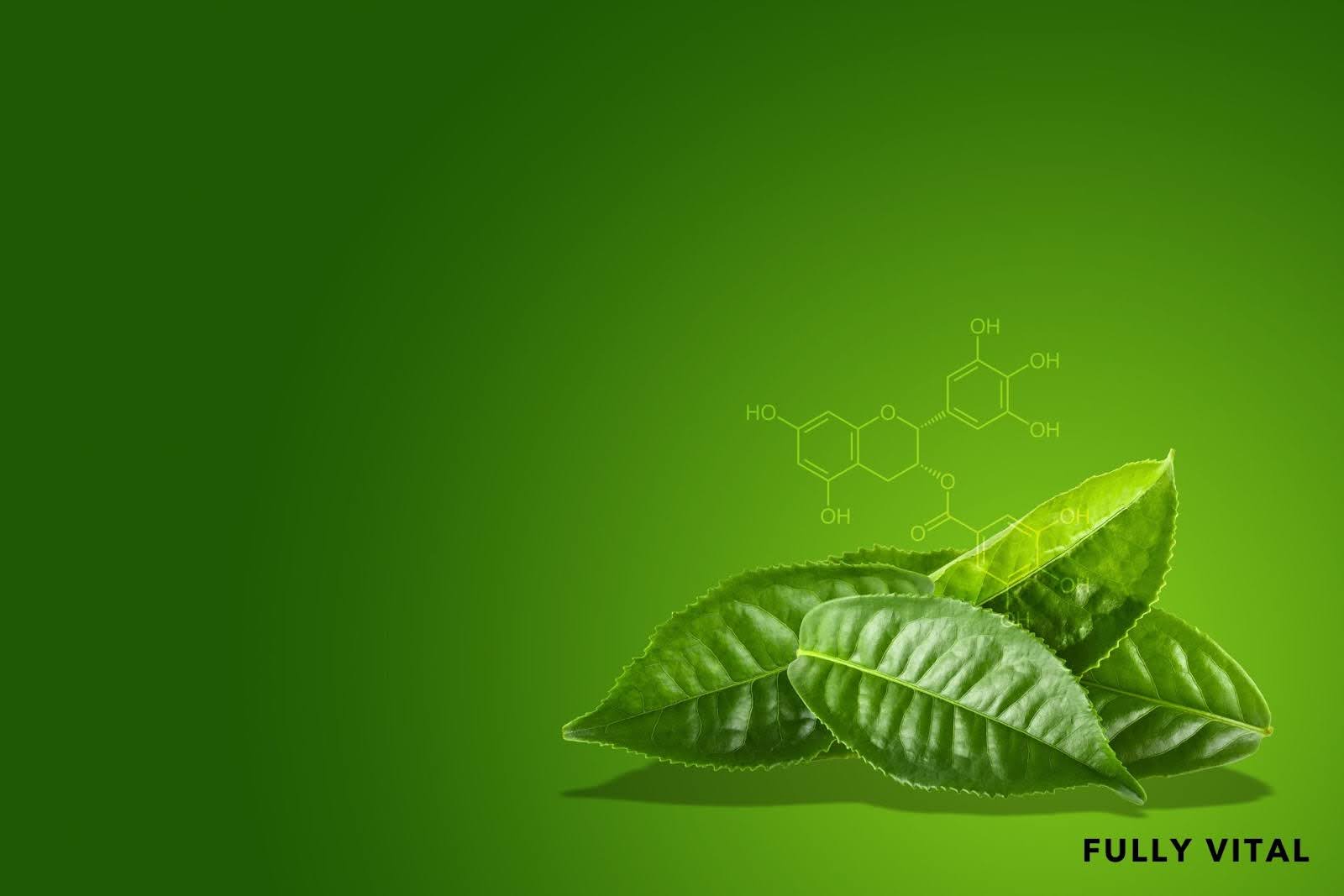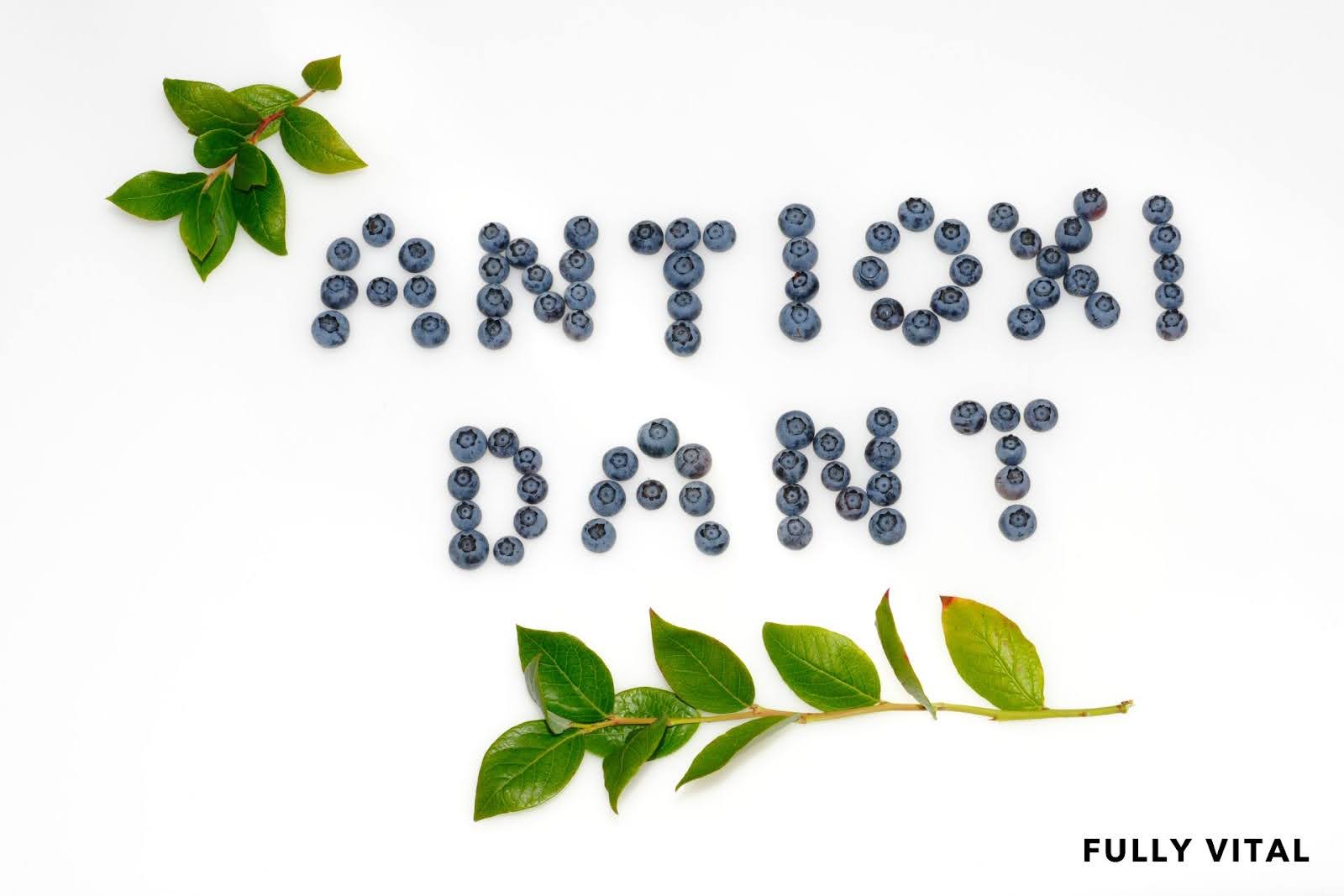
Green Tea For Hair Growth: Exploring The Power Of EGCG
Hair health is a concern for many, driving the search for natural solutions that promote growth and vitality.
Among these, green tea has emerged as a potent ally, thanks to its rich content of antioxidants, particularly Epigallocatechin gallate (EGCG).
This compound has been linked to numerous benefits, including the potential to enhance hair growth and strength.
This article explores the science behind green tea and EGCG, how they can be used to support hair health, and practical advice for incorporating them into your daily routine.
By understanding the benefits and methods of application, you can make informed decisions about including green tea in your hair care regimen.

I LOVE MY HAIR NOW
FullyVital hair serum and hair vitamins made tremendous improvements in my hair. I truly love my hair now.
Shop Hair ProductsWhat Is EGCG?
Epigallocatechin gallate (EGCG) is a powerful antioxidant found predominantly in green tea, known for its extensive health benefits.
Beyond its well-documented impacts on weight loss and heart health, EGCG plays a significant role in hair care.
Its antioxidant properties combat oxidative stress, a key contributor to hair aging and loss, thereby.
How Can Green Tea Promote Hair Growth?
Antioxidant Properties Of Green Tea
Green tea is rich in antioxidants, which protect cells from oxidative stress and damage.
For hair, this means a healthier scalp environment conducive to growth.
The antioxidants in green tea, including EGCG, help to neutralize harmful free radicals, reducing inflammation and promoting circulation to hair follicles.
This enhanced blood flow delivers essential nutrients more efficiently, supporting the hair growth cycle.
DHT Blocking Capabilities
One of the key mechanisms through which green tea contributes to hair growth is its ability to block DHT (Dihydrotestosterone), a hormone that, when excessively present, is a primary cause of hair loss.
EGCG's role in inhibiting the production of DHT helps prevent hair follicle miniaturization, a process that leads to hair thinning and loss.
By countering DHT's effects, green tea aids in maintaining the thickness and density of hair, offering a natural strategy for combating hair loss and encouraging hair regrowth.

What Are The Ways To Use Green Tea For Hair Health?
Topical Application
Applying green tea directly to the scalp can maximize its benefits for hair health.
This can be done through rinses or hair masks.
A green tea rinse involves brewing a strong batch of green tea, allowing it to cool, and then applying it to the hair and scalp after shampooing.
Leave it on for several minutes before rinsing off with cool water.
For a hair mask, mix cooled green tea with natural ingredients like coconut oil or aloe vera gel, apply to the scalp and hair, leave it on for about 30 minutes, then wash off with a mild shampoo.
These methods can help reduce scalp irritation, enhance hair strength, and stimulate hair follicles.
Oral Consumption
Drinking green tea can also contribute to hair health from the inside out.
Consuming 2-3 cups of green tea daily provides the body with a healthy dose of antioxidants, including EGCG, which can then support hair growth and overall health.
It's a holistic approach that benefits not just the hair but also improves overall health, potentially leading to better hair growth and reduced hair loss over time.
Regular consumption can also help in managing stress levels, which is another factor that can contribute to hair loss.
Can EGCG Reverse Hair Loss?
Understanding Hair Loss Types
Hair loss can occur due to various reasons, including genetics, hormonal imbalances, stress, and nutritional deficiencies.
Androgenetic alopecia, also known as male or female pattern baldness, is the most common type, characterized by the sensitivity of hair follicles to dihydrotestosterone (DHT).
Other types include telogen effluvium, where hair falls out after stress or shock to the system, and alopecia areata, an autoimmune condition.
EGCG's Role In Hair Regrowth
EGCG has shown promise in addressing hair loss, particularly by targeting the hormonal pathway of DHT, the main culprit behind androgenetic alopecia.
By inhibiting the production of DHT, EGCG can prevent the miniaturization of hair follicles, potentially reversing the effects of thinning and loss.
Additionally, its anti-inflammatory and antioxidative properties support a healthy scalp environment, crucial for regrowth.
While EGCG may not cure all types of hair loss, especially those related to autoimmune conditions or acute stress, it can be a valuable part of a broader hair care strategy, especially for those dealing with hormonal-related thinning.
How Long Does It Take To See Results From Using Green Tea?
Factors Influencing Efficacy
The time frame for seeing noticeable improvements in hair growth and health from green tea use varies significantly among individuals.
Factors such as the extent of hair loss, the method of green tea application (topical vs. oral), and individual health and lifestyle can all influence the effectiveness and timing of results.
Consistency and the overall approach to hair care also play critical roles.
Realistic Expectations And Patience
Generally, it might take several months of consistent use to observe visible changes.
Topical applications may yield quicker results in terms of scalp health and hair texture, while systemic benefits from oral consumption could take longer to manifest.
It's important to set realistic expectations and understand that natural remedies like green tea work gradually and are often part of a long-term hair health strategy.
Patience and consistency, along with a balanced diet and proper hair care practices, are key to achieving and maintaining the best results.
Are There Any Side Effects Of Using Green Tea On Hair?
Potential Irritations
While green tea is generally safe for topical use on the hair and scalp, some individuals may experience irritation, especially if they have sensitive skin.
Symptoms could include itchiness, redness, or dryness of the scalp.
It's important to conduct a patch test before applying green tea broadly, especially when using concentrated extracts or when mixing it with other ingredients for a hair mask.
Precautions And Recommendations
For oral consumption, drinking green tea in moderate amounts is usually well-tolerated by most people.
However, excessive intake can lead to side effects such as nervousness, sleep disturbances, or gastrointestinal issues due to its caffeine content.
It's advisable to limit consumption to 2-3 cups per day and consider caffeine sensitivity.
Individuals with specific health conditions or those on certain medications should consult with a healthcare provider before significantly increasing green tea intake to ensure it does not interfere with their health regimen.

Experience The Effectiveness Of Fully Vital Hair Growth SolutionsFully Vital is dedicated to addressing the challenges of hair aging with a lineup of products designed to rejuvenate and strengthen your hair. Our offerings boast scientifically backed formulations that tackle hair aging, delivering tangible improvements in hair thickness and health. Enjoy the confidence boost from healthier hair, thanks to:
Take the reins on hair aging with Fully Vital and unlock the lustrous, full hair you've been aiming for. |
Final Thoughts On EGCG
Green tea, with its potent antioxidant EGCG, presents a natural and effective avenue for enhancing hair growth and health.
By inhibiting DHT production, protecting the scalp from oxidative stress, and stimulating hair follicles, green tea offers a multi-faceted approach to combating hair loss and encouraging hair regrowth.
Whether applied topically or consumed orally, incorporating green tea into your hair care routine can yield noticeable improvements, though patience and consistency are key to seeing lasting results.
While generally safe for most people, it's important to consider individual sensitivities and consult with a healthcare provider as needed.
By combining green tea with other natural ingredients, you can create powerful remedies tailored to your hair's specific needs.
Embrace the natural benefits of green tea and witness the transformation in your hair's health and vitality.
To elevate your journey towards fuller, healthier hair, discover the synergistic power of Fully Vital's Enhance Hair Serum (3-Pack).
This meticulously crafted serum complements your green tea regimen, offering a targeted approach to nourish, strengthen, and revitalize your hair.
Read Also:
Frequently Asked Questions About Green Tea
Can green tea be used on all hair types?
Yes, green tea can be beneficial for all hair types.
However, individuals should adjust the concentration and frequency of use based on their hair's sensitivity and condition.
Is it safe to use green tea on colored or chemically treated hair?
Green tea is generally safe for colored or treated hair.
It can actually help maintain scalp health and hair vitality after chemical treatments, but always do a patch test first.
Can I use green tea in my hair every day?
Yes, a mild green tea rinse can be used daily.
However, for more concentrated treatments or masks, 2-3 times a week is sufficient to avoid potential scalp irritation.
How should green tea be stored for hair treatments?
Brewed green tea should be stored in a refrigerator and used within 3-5 days.
For longer shelf life, consider using green tea powder or extract as a base for your treatments.
Can drinking green tea have the same effects on hair as topical application?
Drinking green tea contributes to overall health, including that of your hair, by providing antioxidants from the inside out.
However, topical application directly targets the scalp and hair follicles for more localized benefits.
Are there any specific types of green tea that are more effective for hair health?
Organic green teas, especially those high in antioxidants like matcha, are considered more beneficial due to their higher concentration of nutrients, including EGCG.
Can green tea help with dandruff?
Yes, due to its anti-inflammatory and antimicrobial properties, green tea can help soothe the scalp and reduce dandruff when used regularly as part of a scalp care routine.
How long does it take for green tea to expire if used in DIY hair products?
DIY hair products containing green tea should ideally be used within a week if stored in the refrigerator to ensure freshness and efficacy.
Can I mix green tea with my regular shampoo or conditioner?
Yes, adding brewed green tea to your shampoo or conditioner can enhance its benefits, providing antioxidants directly to your scalp and hair with each wash.
Is green tea effective for hair growth if I have an underlying health condition?
While green tea can support hair health, individuals with underlying health conditions should consult a healthcare provider, as hair loss might require targeted treatment beyond natural remedies.
Sources:
- Singh, B. N., Shankar, S., & Srivastava, R. K. (2011). Green tea catechin, epigallocatechin-3-gallate (EGCG): Mechanisms, perspectives and clinical applications. Biochemical Pharmacology, 82(12), 1807–1821. https://doi.org/10.1016/j.bcp.2011.07.093
- Amin, J., Joshita Djajadisastra, Nadia Farhanah Syafhan, Lamria, E., & Kurniati Wulandari. (2019). Green tea [Camellia sinensis (L.) Kuntze] leaves extract and hibiscus (Hibiscus tilliaceus L.) leaves extract as topical hair growth promoter in microemulsion. Agriculture and Natural Resources, 53(2), 139–147. https://li01.tci-thaijo.org/index.php/anres/article/view/229911
- Daniels, G., Akram, S., Westgate, G. E., & Tamburic, S. (2019). Can plant-derived phytochemicals provide symptom relief for hair loss? A critical review. International Journal of Cosmetic Science, 41(4), 332–345. https://doi.org/10.1111/ics.12554








